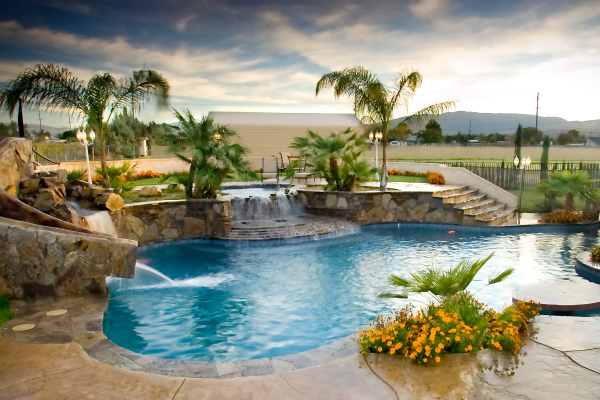
Choosing a pool type for your backyard can be a headache, especially if you are not familiar with the technical and design requirements. However, there are many valuable options to pick from when looking for the type of pool you want to install for your home. There are two major types – in-ground and above-ground pools. For now, we look at in-ground pools and the benefits of each to assist you in making an informed decision based on your budget, preferences, and taste.
Vinyl
It is basically a tailor-made sheet that comes in between the water and the pool structure. In most cases, its top edge, known as a bead, is locked into a track at the lower end of the coping – that is optimally at deck level. Sand or cement-like floor that is proportional in measurements to the vinyl liner is placed beneath it. The floors are constructed to intersect with the walls. The walls are made from 0.9m by 2.4m panels of thermoplastic or galvanized steel. The walls are reinforced on the outside so that they don’t curve under the pressure of the water. All the panels are ultimately put together to form a desirable swimming pool shape. Vinyl pools are loved for their flexibility and life span. Due to the flexibility of the steel walls, it presents you with options on design, size, and shape of your pool area. They do not easily crack like a concrete pool. Maintenance costs are very minimal too. For instance, you don’t need to repaint or re-plaster a vinyl pool. With wear and tear or age taking its toll on the liner, you can easily change it to your preferred color and pattern.
Gunite
A gunite pool is made up of a structure that is covered in a mixture of concrete and sand. They are extremely durable and can be modified into many shapes. You can also choose from a finish that compliments your backyard. To give your pool some artistic touch, you may want to attach a waterfall or tailor-made steps. Look for a pool expert that will guide you and help you in overseeing the entire pool construction process to its successful completion.
Fiberglass
It is also called a ready-made pool because it is molded and installed in your oasis in a single piece. Fiberglass is featherweight and tough. It is fabricated by weaving tiny glass threads into a tissue, then solidifying the tissue using a purpose-built polyester resin. A weather resistant gel is added to give your pool a sleek finish. A significant advantage of fiberglass pools is the speed at which they can be installed – as fast as a few days. This type of pool is smooth and resistant to algae formation. Fiberglass pools need no resurfacing in the long run and are known to keep the water pH levels stable and healthy.
If you have any questions on how to go about installing a pool at your home, feel free to connect with us for oversight, tips, and valuable information.


